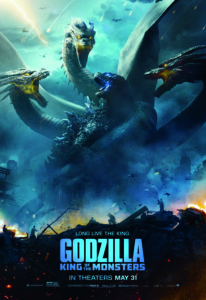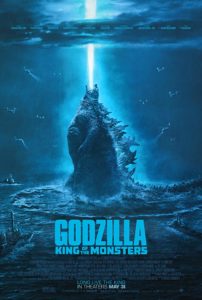Guest Writer: Eric Anderson, founder of Nerd Chapel
This weekend Avengers: Endgame is re-releasing in theaters. I have teamed up with Scott Bayles and Nathan Marchand to provide content on each other’s sites inspired by the great film. Spoilers!
When we first met Tony Stark (Iron Man), he was a businessman who liked fast cars and lived for himself. Now as we enter the theater for one last big hurrah, and a huge one it was, all we knew is that he is stuck on a planet far away. We knew from trailers he seems to be stranded in space, and that is how we find him at the beginning of Avengers: Endgame. In deep space, he has no hope to give.
Captain Marvel finds Nebula and Tony on the last bit of oxygen and food they had left. Stark has even passed out and could barely look up to see her as she came to assist. His morale, like all of them, was so low, it wasn’t even reachable. They had lost and half the universe was disintegrated by the Mad Titan.
He is essentially carried home to Earth and painfully steps out of the ship dehydrated and barely able to stand. We soon learn how angry he is about everything. This was the man who had risked a one-way trip during the invasion in New York during The Avengers to save the Big Apple and stop an invasion; who tried to build “a suit of armor around the world” in Age of Ultron; who implored Captain America to stay on his side during Civil War. Now, it was time for, “I told you so.” Captain America had left him and wasn’t there to fall with him, even though he did protect Earth while Tony was away helping Dr. Strange. Tony is angry about the separation, but he’s also beaten and almost out of health points. Tony doesn’t even go with the team to face Thanos when they find out where he is. Dr. Strange had given up everything to save him, but when they first go to take the battle to Thanos, he is passed out in a hospital bed.

After finding out that Thanos has destroyed the Infinity Stones, they all come back cope with defeat and loss. Each one in his own way. For Tony, it means starting a family. He and Pepper get a house on a lake and begin raising a little girl named Morgan. Their form of coping is through family and solitude.
Family is an important theme in Scripture right from the beginning. Genesis tells us that Adam does not have a suitable “helpmate,” and so God creates a wife for him. God then tells them to “be fruitful and multiply” (Genesis 2). As we continue reading, we find that many Bible heroes had families. Abraham had two sons, one of whom was born miraculously in Abraham’s old age. This same Abraham rescued his nephew Lot after he and many others were captured. David had many children. Unfortunately, he did not always make good choices, and so not all of them made good choices, either. Gideon had over 70 children and multiple wives.
We are not meant to live alone in isolation. Not all of us need to have five kids, but we should all have family of some form. Family can sit with us even without the words we need and still comfort us. They know what food will calm us down and how to make us laugh. On the flip side, we can fill those same voids for them on their rough days.
The other way Tony copes after all of this is solitude. In Psalm 46:10, we are commanded to “be still and know that I am God.” This means ignoring the five thousand needs to step away and pray. Jesus Himself stepped away and prayed in lonely places on many occasions. He sought a refueling from His Father in isolation. Again, family and solitude together.
Finally, Tony’s solitude is interrupted by Steve, Natasha, and Scott with a wild idea. Tony blows it off at first, but it lingers. They go back to experiment without him, but he does his own research. Now, in much better health, he reluctantly rejoins the fight. They use Scott’s 12 percent of a plan and, with some more input for the plan, they get the Stones. While Bruce Banner is the one to bring everyone back, in the end Tony pays the high price of his life and a snap to stop Thanos once and for all. The man who started this journey 22 films and 10 years ago as a self-absorbed party animal gives his life to save the world. All he needed was to see the great needs around him and take a break from it with solitude and family before sacrificing himself to save this planet. It didn’t need “a suit of armor around the world,” but we did need an armored knight to accept the winning blow for the world. Nothing is more Christ-like than that.




